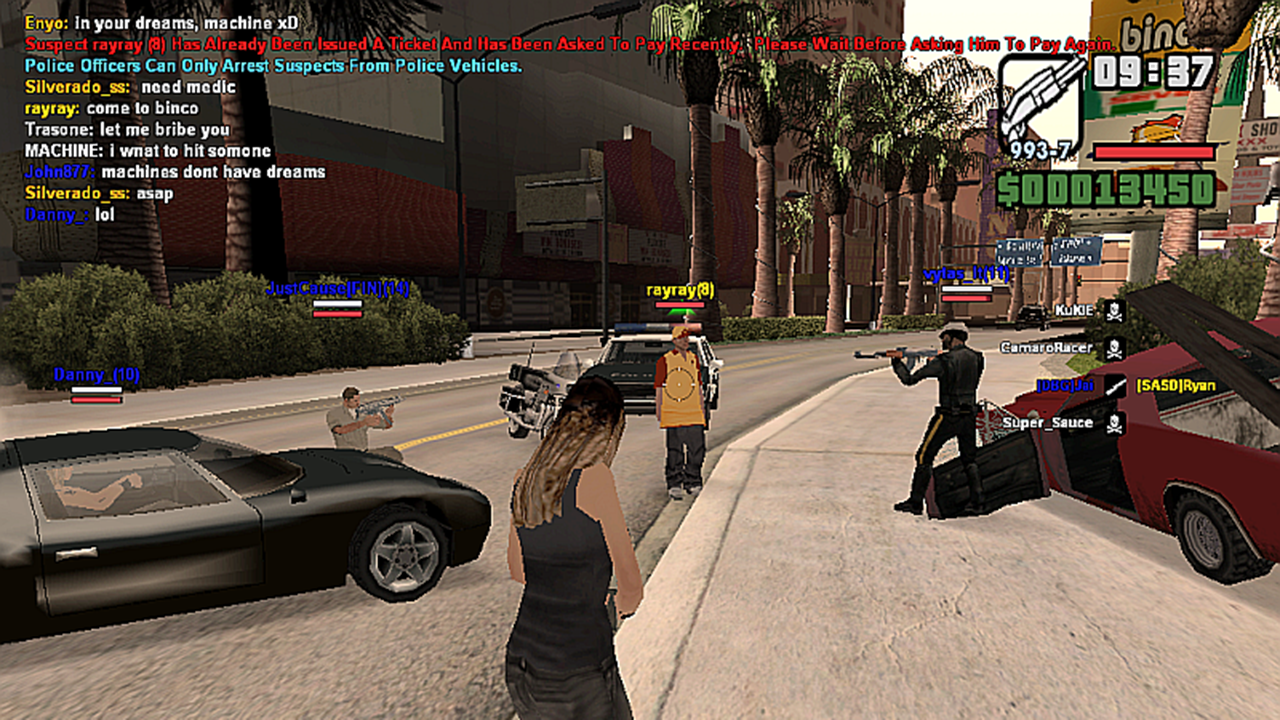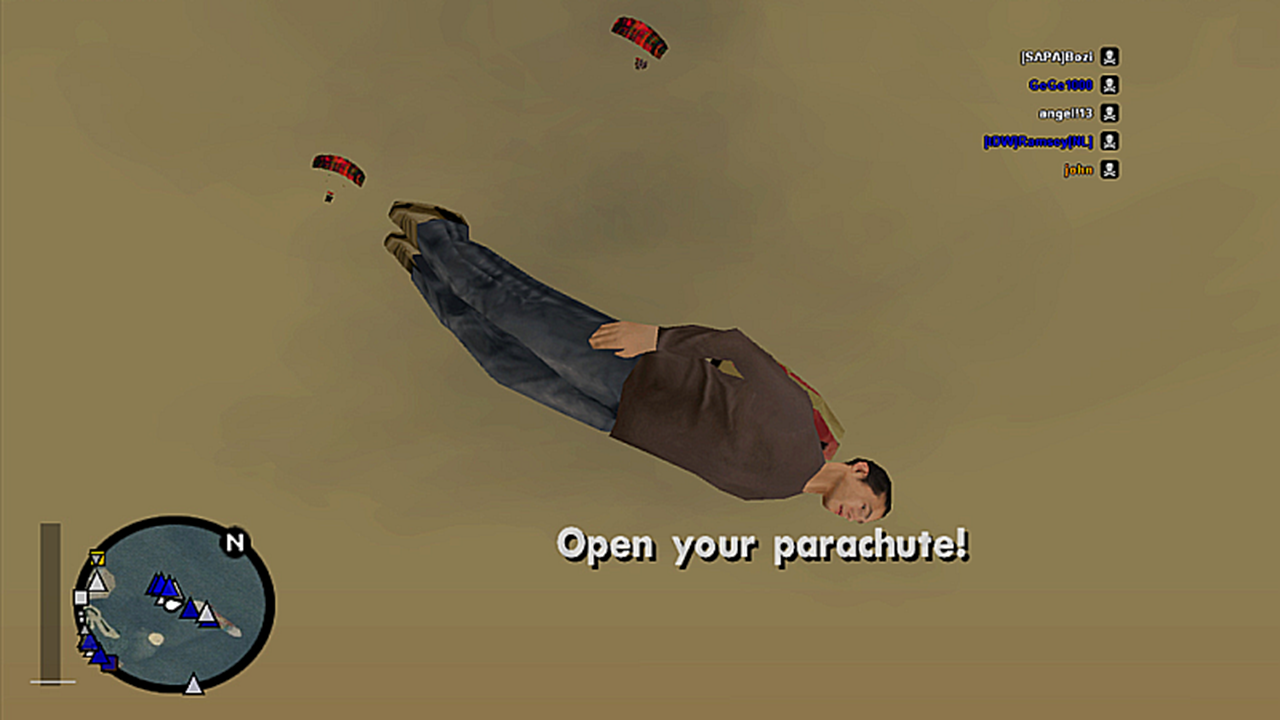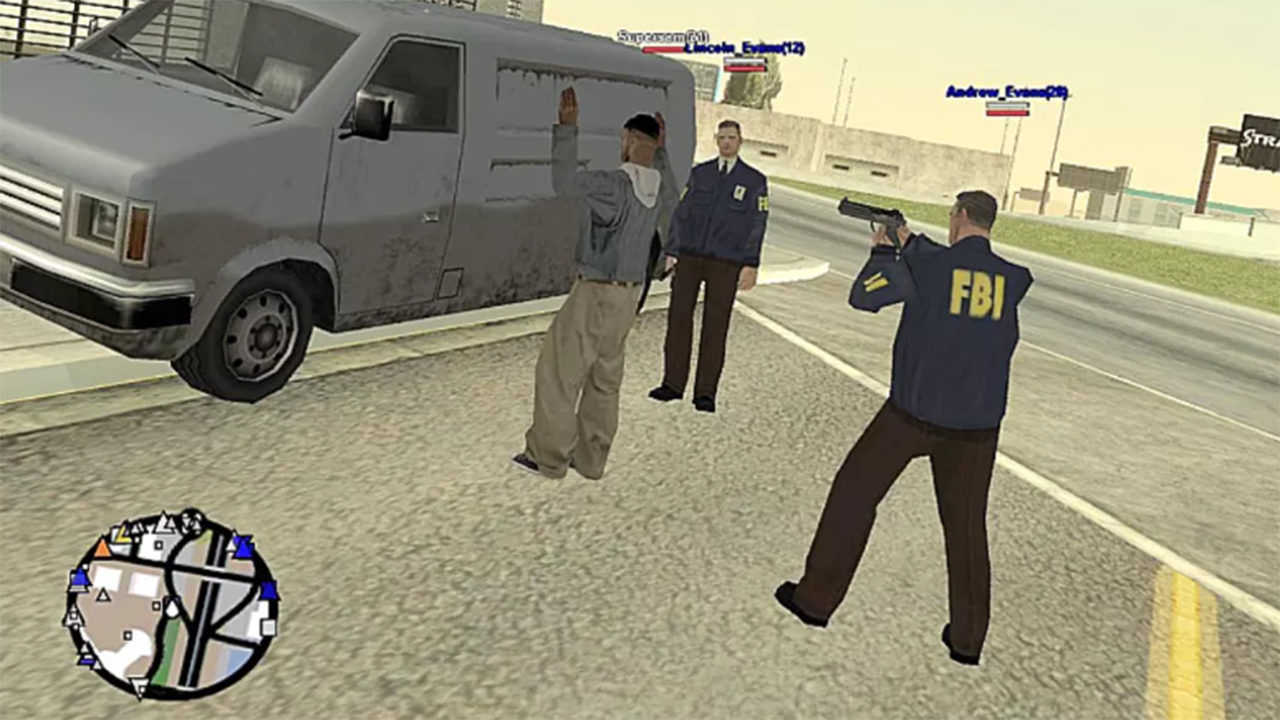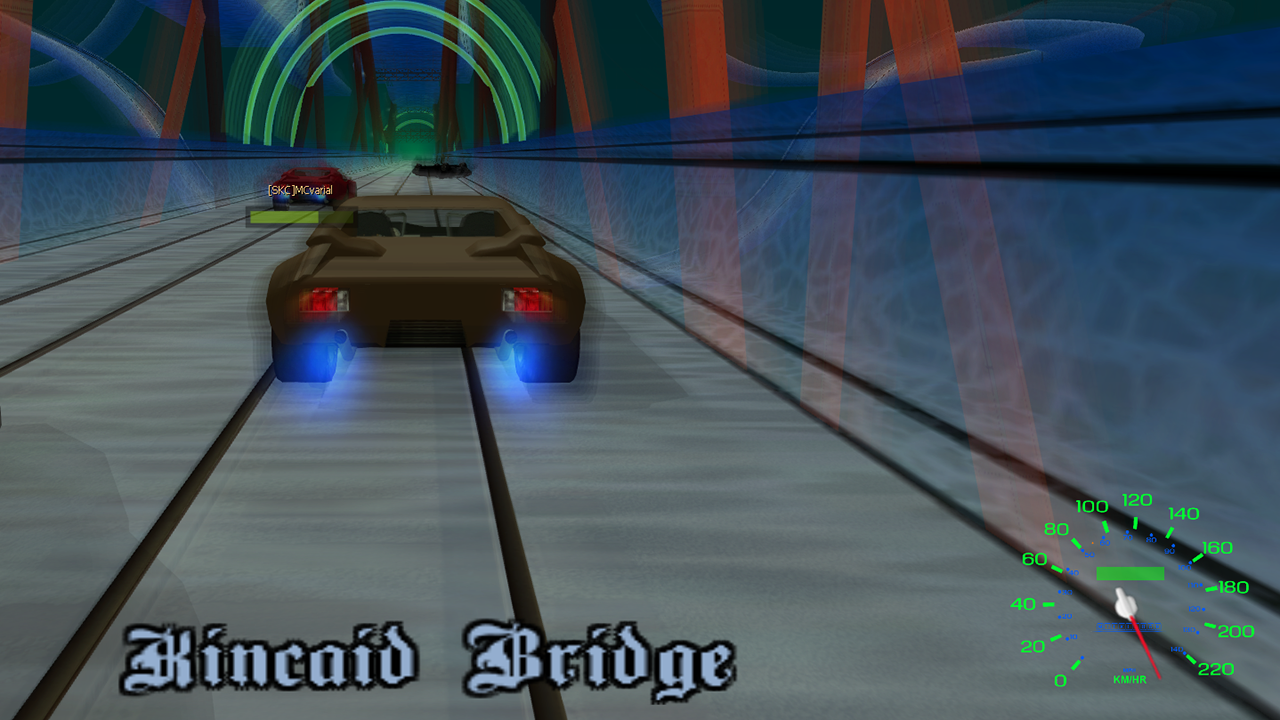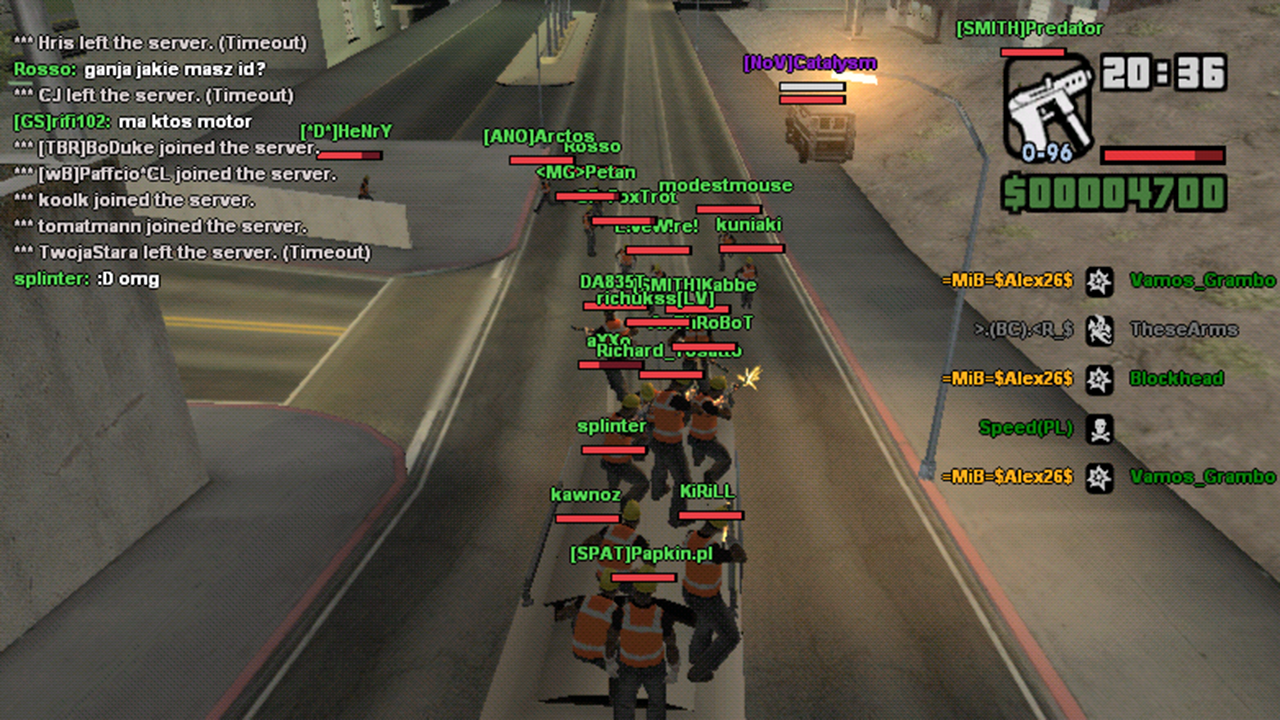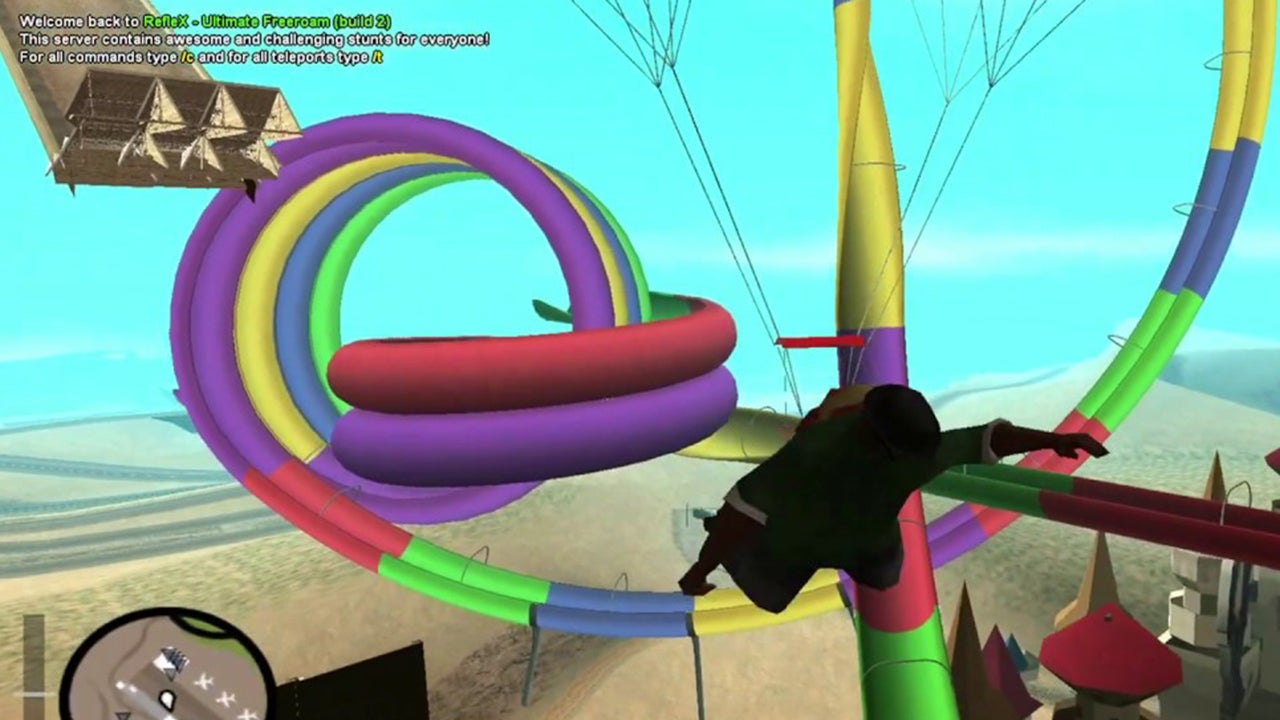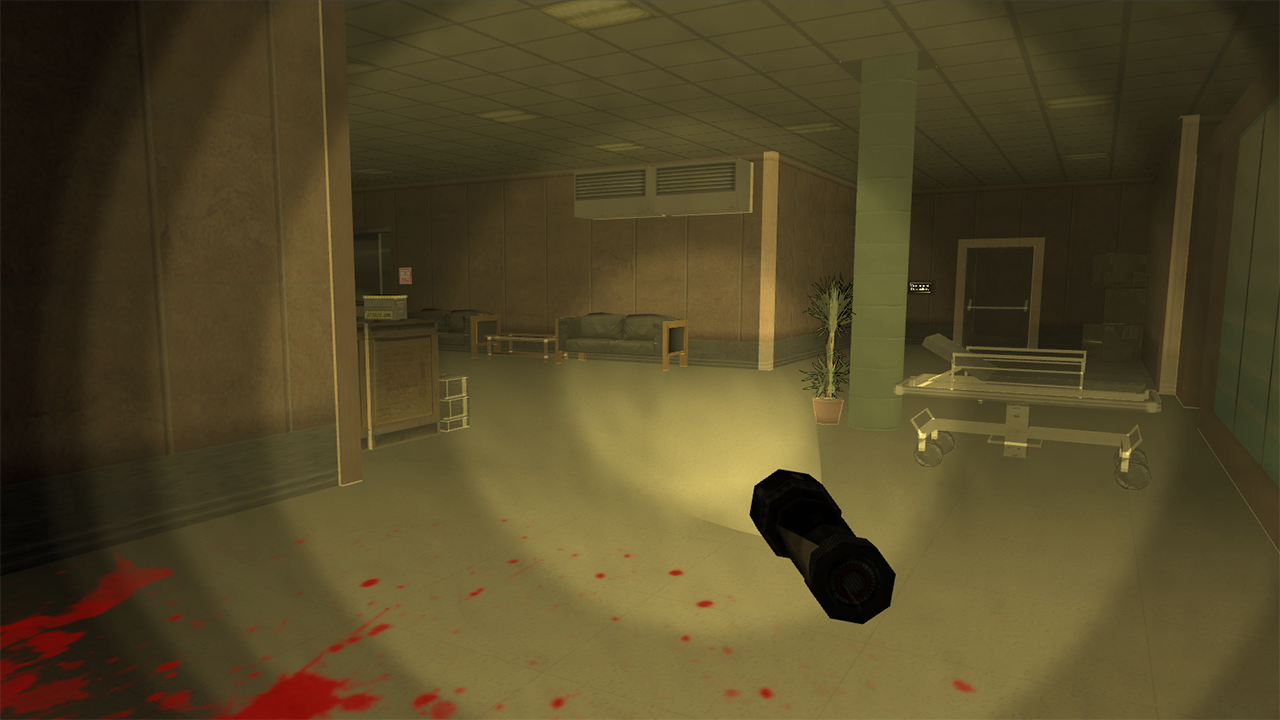Long-time GTA fans may remember – or still play – hugely successful mods such as San Andreas Multiplayer (SA-MP) and Multi Theft Auto (MTA). Somehow, after all these years and against all odds, they’re still going strong and reeling in thousands of players each month – last year, nearly 4,000 SA-MP servers were active, with 25k to 40k players concurrently online on average. As for MTA, the current player count sits around 25k players online on 1,246 public servers at the time of this writing. These numbers are especially surprising when we consider GTA Online, Rockstar’s official, triple-A alternative, has been running for nearly a decade now, becoming bigger and deeper with each major content update. For research purposes (and because I was feeling a bit nostalgic), I jumped into SA-MP earlier this month. To my surprise, the numbers hadn’t changed much since last year’s reports. Granted, I was playing during the weekend, but it was amazing to see several free-roam and RP servers filled to the brim with players who refuse to move on to flashier pastures. And it’s easy to see why: there’s an inherent chaos to both SA-MP and MTA which can’t be replicated with an official online Grand Theft Auto experience. We’re plenty familiar with fan-made modifications going absurdly massive and chaotic – it happens with single-player and online games alike – and San Andreas’ once-massive open world has long been the perfect playground for gamers and developers with too much time on their hands. Even after 15 years or so, SA-MP and MTA are far from being robust experiences; these modifications are unstable, network problems are common, and the quality of the overall experience is highly dependent on the servers you choose to play on. Regardless, it’s hard to find multiplayer modifications as creative as the ones a ragtag team of modders – and literally everyone that wanted to help out – created slowly but steadily. San Andreas might be bursting at the seams when it loads up a heavily modified stunt server filled with custom assets, but 200 (or even 300!) players are having the time of their lives crashing into each other and finding new ways to perform rad tricks. They may be lagging all over the place, but the performance, it seems, is part of the charm. Another key to SA-MP and MTA’s long-lived success is how devs encouraged – and even supported – role-playing once the community started to set up fairly complex servers with custom rulesets and commands. If you’re familiar with the modded RP servers on GTA Online that have become incredibly famous thanks to streamers, you should take a look at the origin of it all. In some players’ eyes, the starting place is better than the finish line. We tried to reach out to both SA-MP and MTA developers, but they’ve not been very communicative. After all, the biggest minds behind them have come and gone, and few of the original devs (who have probably moved on with their lives and jobs) remain improving code and reworking ideas with no end in sight. When you take a look at the current state of development on both mods, the work structure appears to be anything but centralized. Oddly enough, it’s proving to be quite effective. It’s not hard to jump into an “official” (there are so many of them) Discord server and chat with moderators and veterans that can point you in the right direction. Dig too deep, and you’ll find plenty of dead ends, though. Things become funnier and more fascinating when you ask who’s in charge, since no one knows for sure. Power to the people, I guess. We can come up with a fairly reliable timeline of events for both modifications though. In the case of SA-MP, the revolutionary mod was born from progress on Vice City Multiplayer, released in April 2005. After a public beta, lead dev “kyeman” (later known as Kalcor) and his team moved on to work on San Andreas while another group of devs picked up VC-MP – this modification also proved to be successful, but it was inevitably overshadowed by the bigger GTA. Work on SA-MP moved quite fast despite the difficulties introduced by San Andreas’ vastly bigger world. After all, SA-MP was being built on top of VC-MP’s structure, so a big part of the code was the same. The first playable release was launched in May 2006, yet a fairly stable build didn’t arrive until June 20, 2007. By the time SA-MP 0.2 was officially released, tools had been unleashed for modders and players to come up with new modes and custom servers. Unsurprisingly, cheats and exploits arrived shortly afterwards, and quickly after the release of 0.2, the SA-MP team almost quit because they lacked the strength and ability to deal with people who just wanted to see San Andreas burn. In less than one day, however, a huge online petition gave them enough strength to crack down on cheaters, closing the main exploit and coming up with a built-in anti-cheat system. It was an impressive effort from a team Kalcor once described as “just a bunch of GTA fans who thought it would be fun to play Vice City and San Andreas as a multiplayer game.” SA-MP continued to be improved for years with smaller but much-needed updates, but its history gets fuzzier from 2008 onwards, with the main development team often quitting only to return a few days later. As work on the massively popular modification progressed, it became abundantly clear the minds behind it were overwhelmed by the success of something that had started as an experimental project – Kalcor was finally done with SA-MP in 2019. Nowadays, development is fragmented at best, but servers abound, and the community still feels like a big family always open to help newcomers. On the other hand, Multi Theft Auto’s history started with GTA 3 before moving on to Vice City. Many players were surprised by its accessibility, and that’s a quality the MTA development team kept close to their chest moving forward and into San Andreas. Moreover, the approach to MTA always was open source, which allowed it to incorporate new ideas and improvements at a faster rate than SA-MP ever did. In the long run, the “let’s build towards what the community wants” that dictated MTA’s development has paid off – SA-MP had a good run as the most popular modification, but currently feels like a remnant of an older age, whereas MTA has become the most cohesive and flexible multiplayer take on classic Grand Theft Auto games. Big Deathmatch and RP servers are still the go-to destinations for MTA players, but it’s mind-bending to see entirely different maps and wacky modes, such as first-person horror survivals, running on a crusty engine from 2004 with relative ease. On top of that, modular extras can be added to customize one’s experience with MTA down to the tiniest detail. As we look forward to GTA6 – while burning down Los Santos over and over again in GTA Online to make millions of e-bucks – we shouldn’t forget about the series’ unofficial multiplayer past. Looking at some of the more free-spirited modes released over the years, it’s abundantly clear that Rockstar has learned tons from it. And – with the scene looking happier and healthier than ever in 2022 – perhaps the studio will continue to do so, too.
